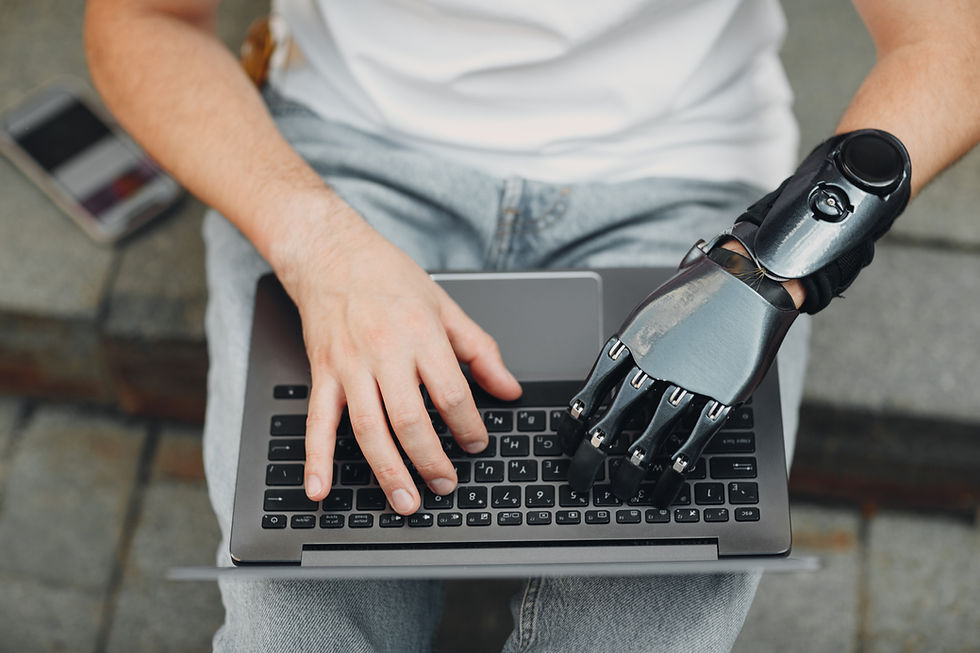Revolutionizing Order: The Role of AI in Professional Organizing
- Amelia Colomb
- Jun 15, 2024
- 3 min read

In today’s fast-paced world, the need for organization extends beyond tidy drawers and well-arranged schedules. With the advent of artificial intelligence (AI) and sophisticated technology, the realm of professional organizing is undergoing a profound transformation. This shift is not just about enhancing physical spaces but also about streamlining digital environments to foster efficiency and clarity.
The Integration of AI in Physical Organizing
Professional organizers have traditionally relied on hands-on techniques and personal interactions to declutter spaces and improve workflow. However, the emergence of AI-driven tools is reshaping this landscape. Smart home devices, for instance, can now automate the management of household items, control clutter, and maintain inventory through voice commands and mobile apps. This allows organizers to focus on more complex tasks like space planning and personal coaching while leaving routine management to intelligent systems.
AI-powered analytics can offer personalized organization solutions by learning from user behavior. Systems equipped with AI can suggest optimal organization methods based on how frequently items are used or the user's preferred style of organization. This level of customization was unimaginable a few years ago but is now at the forefront of professional organizing services.
Case Study: AI in Home Organization
Consider the example of a smart closet system that uses AI to track clothing usage patterns. This system can recommend outfits based on weather forecasts, user preferences, and upcoming calendar events, simplifying daily routines and optimizing wardrobe space. Such innovations not only save time but also enhance the user experience by personalizing organizational strategies.
Transforming Digital Organization
The digital domain is another area where AI and technology are making significant inroads. In the age of information overload, managing digital files, emails, and online data efficiently is just as crucial as organizing physical spaces. AI tools are proving invaluable in this respect, offering sophisticated methods to sort, categorize, and even prioritize digital content.
Software solutions that utilize machine learning can automatically tag and organize digital files based on content recognition, making them easier to retrieve. For example, photo organizing apps can now recognize faces and scenery, categorizing images without manual input. Similarly, email management tools powered by AI can filter, label, and prioritize emails based on their importance and urgency, drastically reducing the time spent on managing inboxes.
Enhancing Productivity with Digital Tools
AI's impact on digital organization extends into more complex applications such as project management and virtual workspaces. AI-driven tools can predict project timelines, suggest resource allocations, and even identify potential bottlenecks before they cause issues. This proactive approach to digital organization not only streamlines processes but also boosts productivity across teams and projects.
Future Prospects
As AI continues to evolve, the future of professional organizing looks increasingly integrated with technology. We are seeing the beginning stages of virtual organizing assistants—AI entities that can not only remind you of organizing tasks but also suggest ways to improve your space and digital footprint. These assistants could eventually interact seamlessly with both our physical and digital worlds, suggesting when to discard unneeded items or unsubscribe from unnecessary digital content.
The Horizon of AI Organizing Tools
The convergence of AI with sensory technologies like augmented reality (AR) and virtual reality (VR) could redefine space management. Imagine using AR glasses to visualize furniture arrangements or declutter a room before physically moving anything. Such technologies can enhance decision-making and planning processes, making organizing more intuitive and less cumbersome.
Moreover, the potential for AI to facilitate seamless transitions between physical and digital organizing is immense. AI systems that guide digitization of physical documents, automatically categorizing them into your digital filing system, and even suggesting which physical documents can be securely discarded, are not far from becoming a daily reality.
The convergence of AI and professional organizing is not just enhancing our ability to manage spaces and data; it's revolutionizing the way we think about and interact with our environments. For businesses and individuals alike, embracing these technologies offers a pathway to not only more organized spaces but also more efficient and enjoyable lives.
As we continue to navigate this digital age, the role of AI in professional organizing is undeniable and exciting, promising a future where order and technology go hand in hand, creating harmony in both our physical and digital worlds.






Comments